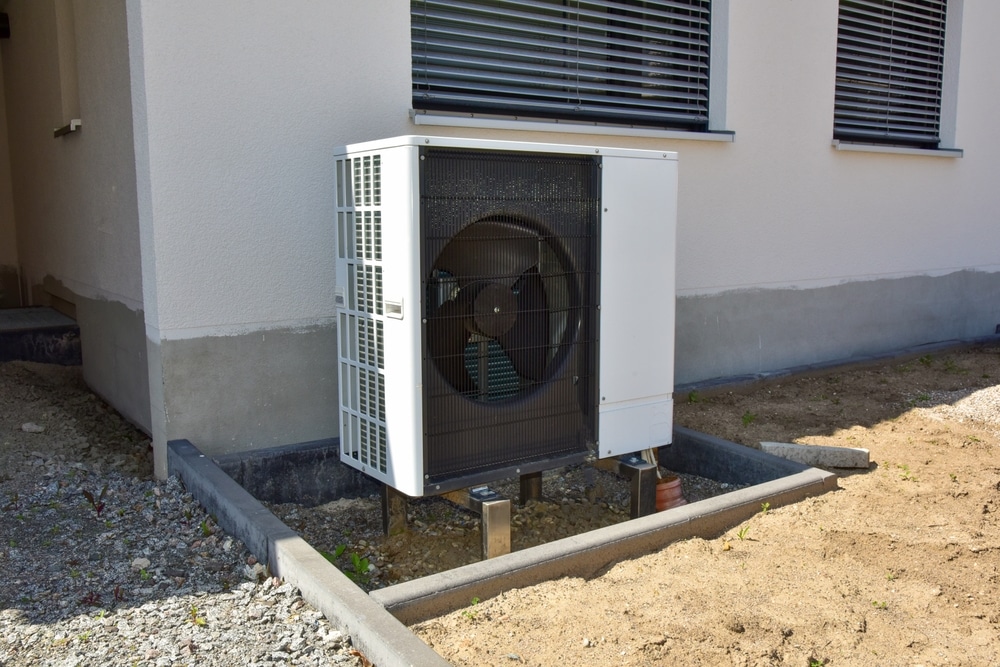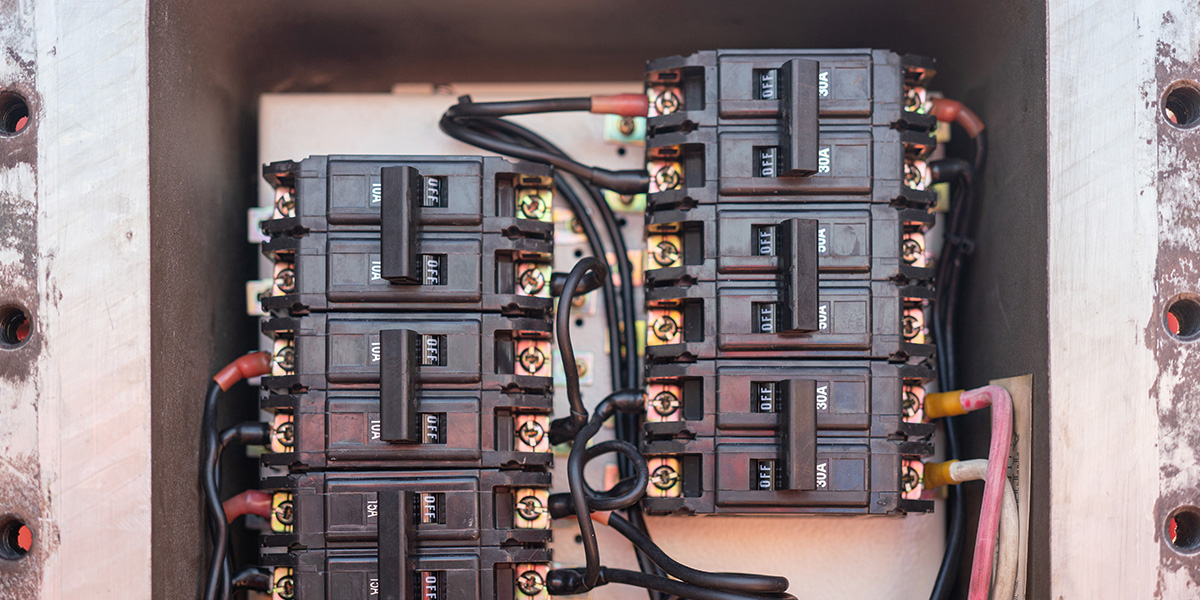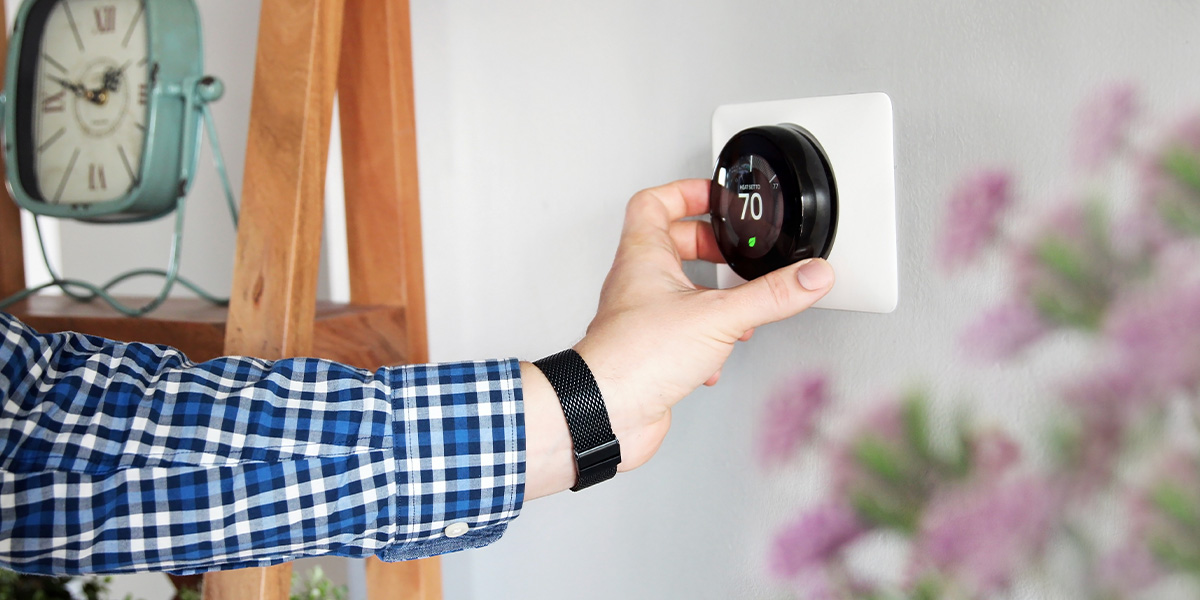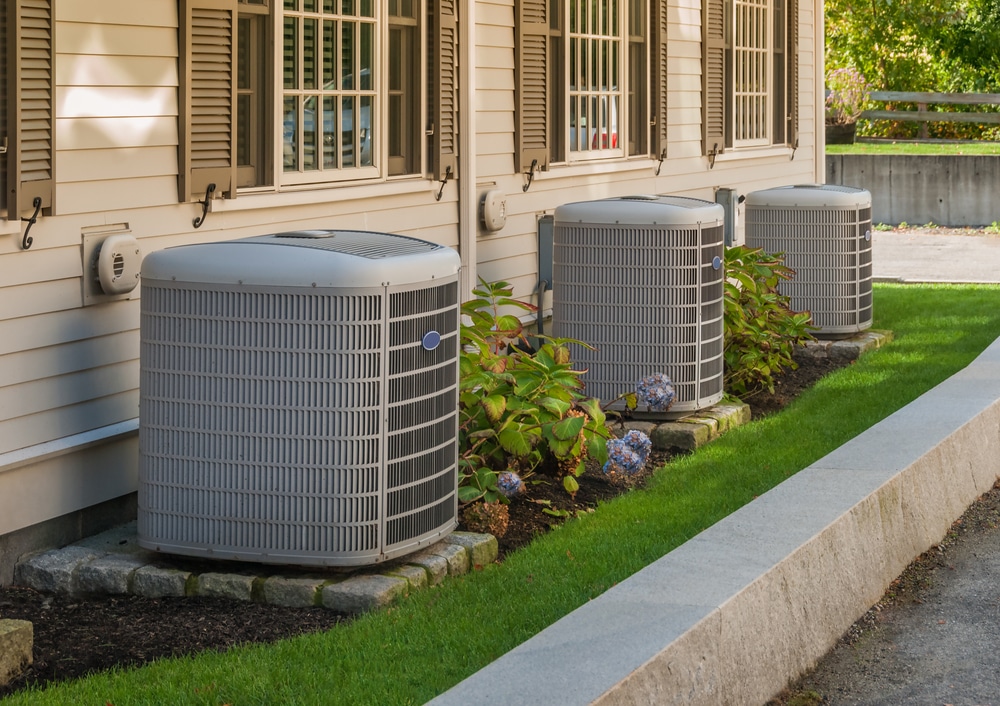With the changing seasons, homeowners face the crucial decision of selecting the best heating system for their homes. One of these decisions boils down to a heat pump or a gas furnace. So, which is right for your home?
GreenBox Home Services is here to help. Let’s compare heat pumps and gas furnaces, exploring their differences, benefits, and considerations to help you make an informed decision.
Overview of Heat Pumps
Heat pumps offer heating and cooling in one system that includes indoor and outdoor components. They utilize electricity as a power source and offer excellent energy efficiency. For the winter, heat pumps absorb heat energy from the outdoor air and transfer that heat inside your home—even in frigid temperatures. For cooling, heat pumps work like other cooling systems, pulling hot air from inside your home and passing it through refrigerant coils. This cools the air before blowing it back into your home.
Heat pumps rely on refrigeration, a technology commonly used in other household appliances like refrigerators and freezers. Heat pumps circulate refrigerant between indoor and outdoor coils through a sealed loop of pipes. This adjusts the pressure and state of the refrigerant, which can either create an extremely cold fluid to absorb heat or an extremely hot gas that is ready to release heat. A heat pump can switch between heating and cooling by reversing the direction of the refrigerant.
Types of Heat Pumps
There are two types of heat pumps, air-source heat pumps and ground-source—also known as geothermal—heat pumps.
Air-source heat pumps. These take heat from the air and boost it to a higher temperature. Air-source heat pumps are also offered in two variations, air-to-water and air-to-air. Air-to-water is better suited for newer properties with higher levels of energy efficiency. Air-to-air heat pumps can be used for heating, but they can’t produce hot water.
Ground-source heat pumps. This style of heat pump is made up of a network of underground piping that absorbs the natural heat from the ground. This eliminates the need to burn fossil fuels. To transfer the heat into the home, the heat needs to be absorbed into the ground loop that contains a mix of water and antifreeze. This mixture will then be put through a heat exchanger where the heat will be extracted and transferred to the heat pump, and then into the home.
Advantages:
The advantages of choosing a heat pump include:
- Energy efficiency
- Dual functionality (heating and cooling)
- An environmentally friendly option
Disadvantages:
- Higher upfront cost
- Less effective in colder climates
Overview of Gas Furnaces
Gas furnaces work by burning natural gas to produce heat. That heat is then delivered through ductwork in the home. First, natural gasses get combusted to generate heat. The generated heat is put through a heat exchanger where it is then exchanged to the other side. The exhaust from the combustion is then vented away from the home.
Once that exchanger is warmed up, the blower fan starts. The blower fan pulls in cold air from inside your home through the return register and pushes it over the hot heat exchanger. As the cold air passes over it, it’s heated up. This cycle continues until the air in your home reaches your desired indoor temperature.
Types of Gas Furnaces:
There are three types of gas furnaces: single-stage, two-stage, and modulating.
Single-stage gas furnaces. These only operate at one speed, making them better for regions with mild winters.
Two-stage gas furnaces. These can operate at high or low speeds. They have a longer running cycle which allows for more evenly distributed heat throughout the home.
Modulating. These can operate at variable speeds. By making slight adjustments to minimize temperature fluctuations, modulating gas furnaces have much higher energy efficiency.
Advantages:
The advantages of gas furnaces include:
- Lower upfront cost
- Effective heating in very cold climates
- Long lifespan
Disadvantages:
- Higher operational costs due to gas prices
- Limited to heating only
Heat Pump and Gas Furnace Cost Comparison
When choosing between a heat pump and a gas furnace, cost comparison is a key factor for many homeowners. Cost comparison between the two starts at the initial cost, but also includes operational and maintenance costs.
Initial Costs:
Gas furnace. The initial cost of a gas furnace ranges from $2,500 to $4,000.
Heat pump. The initial cost of a heat pump typically falls in the range of $3,500 to $5,000.
These price ranges are only approximate because factors like location, brand, complexity of installation, and additional equipment like ductwork modifications all influence the final cost.
Operational Costs:
Because heat pumps offer heating and cooling, they provide year-round savings on energy costs. Gas furnaces cost more to operate due to high fuel costs, and if a region’s gas prices are steep, this makes gas furnaces even more expensive to operate. With local climate and utility prices in mind, it’s beneficial to have a heat pump with a climate range of 40-60 degrees Fahrenheit. If the local climate is below 0 degrees Fahrenheit, a gas furnace would be more beneficial.
Maintenance Costs:
Heat pump maintenance costs tend to be lower since they have fewer moving parts than gas furnaces. For effective and safe operation, gas furnaces should be inspected annually. Annual gas furnace tune-ups typically cost between $125 and $200. Heat pumps don’t require as much upkeep, but they should still be inspected annually as a preventive measure.
Environmental Impact
In terms of these system’s impact on the environment, heat pumps are by far the more environmentally friendly option. Heat pumps get their energy from electricity, which can be drawn from renewable energy sources, specifically ground-source pumps. Gas furnaces, on the other hand, burn fossil fuels which lead to higher amounts of greenhouse gas emissions.
Long-term Investment and Resale Value
When it comes to today’s markets, more prospective homebuyers are placing an importance on energy efficient and environmentally friendly HVAC systems. Additionally, newer units with reputable branding and modern aesthetics are more lucrative on the market.
So when looking between a heat pump vs. a gas furnace, heat pumps have more of what current homebuyers are looking for. Those factors also make for quicker and higher sales on the home market.
Recap
The debate of choosing between a heat pump vs. a gas furnace is dependent on multiple factors like individual needs, climate, and budget. Consult with the HVAC professionals at GreenBox Home Services today to receive personalized advice that will lead you to the best solution for your home.
FAQs
Are heat pumps more expensive to operate than gas furnaces?
The operational costs of heat pumps and gas furnaces depend on various factors, including local energy prices, system efficiency, and your home’s insulation. While heat pumps may have higher upfront costs, they can be more cost-effective over time due to their energy efficiency, especially in milder climates. Gas furnaces might have lower initial costs but can lead to higher energy bills in the long run due to fluctuating natural gas prices.
Can a heat pump also cool my home?
Yes, one of the significant advantages of a heat pump is its dual functionality. It can provide both heating and cooling, making it a versatile option for year-round comfort. During the summer, the heat pump reverses its operation to remove heat from your home, acting as an air conditioner.
What are the maintenance requirements for heat pumps vs gas furnaces?
Both heat pumps and gas furnaces require regular maintenance to ensure optimal performance and longevity. Heat pumps typically need more frequent check-ups, including cleaning the coils, checking refrigerant levels, and ensuring proper airflow. Gas furnaces also need annual inspections, focusing on the burner, heat exchanger, and ventilation system. Regular maintenance by a professional can help prevent costly repairs and extend the lifespan of your heating system.
How long do heat pumps and gas furnaces typically last?
The lifespan of a heat pump is usually around 10-15 years, depending on usage and maintenance. Gas furnaces tend to last longer, with an average lifespan of 15-20 years or more with proper care. Investing in regular maintenance and timely repairs can help maximize the longevity of either system.








